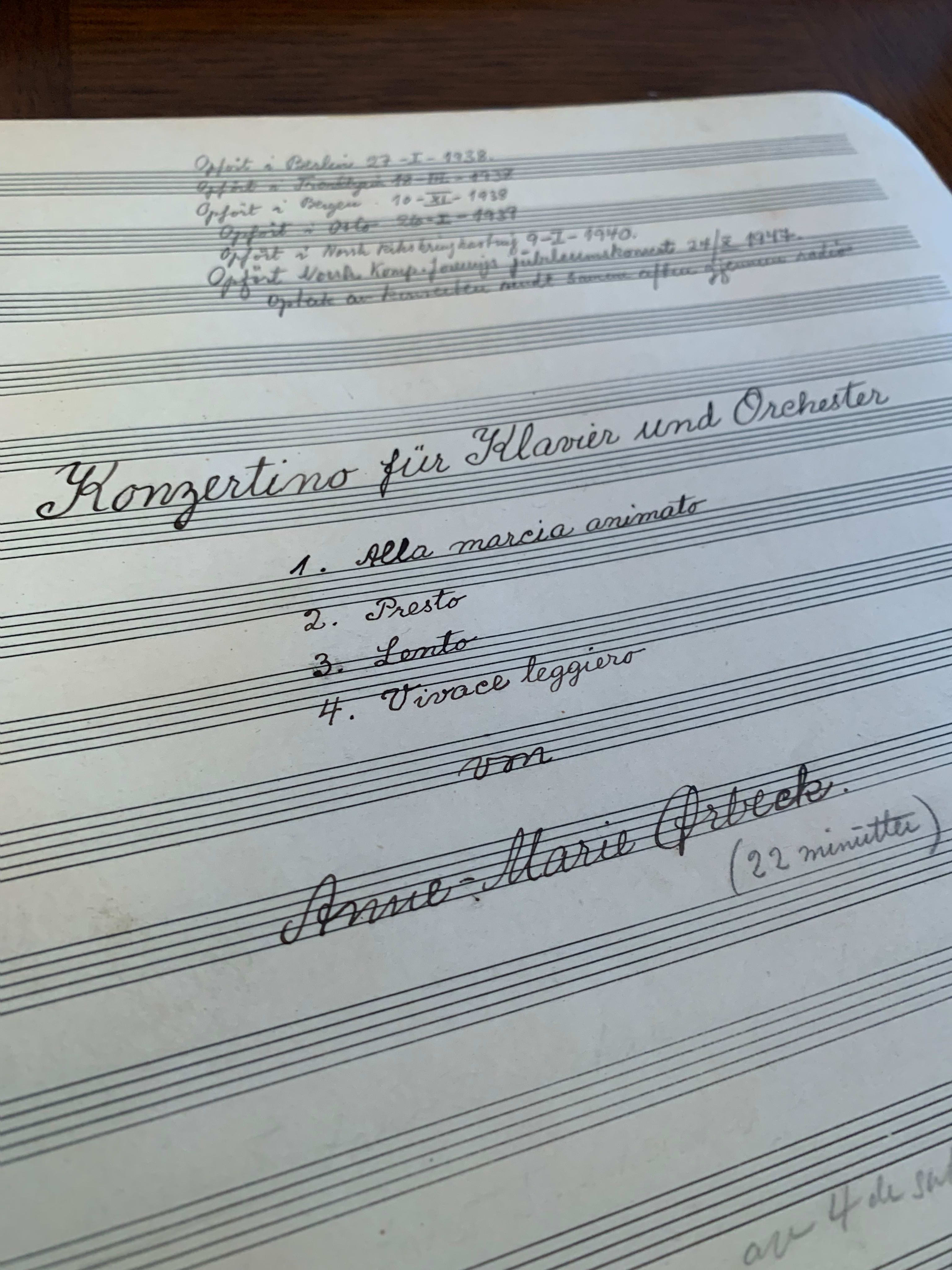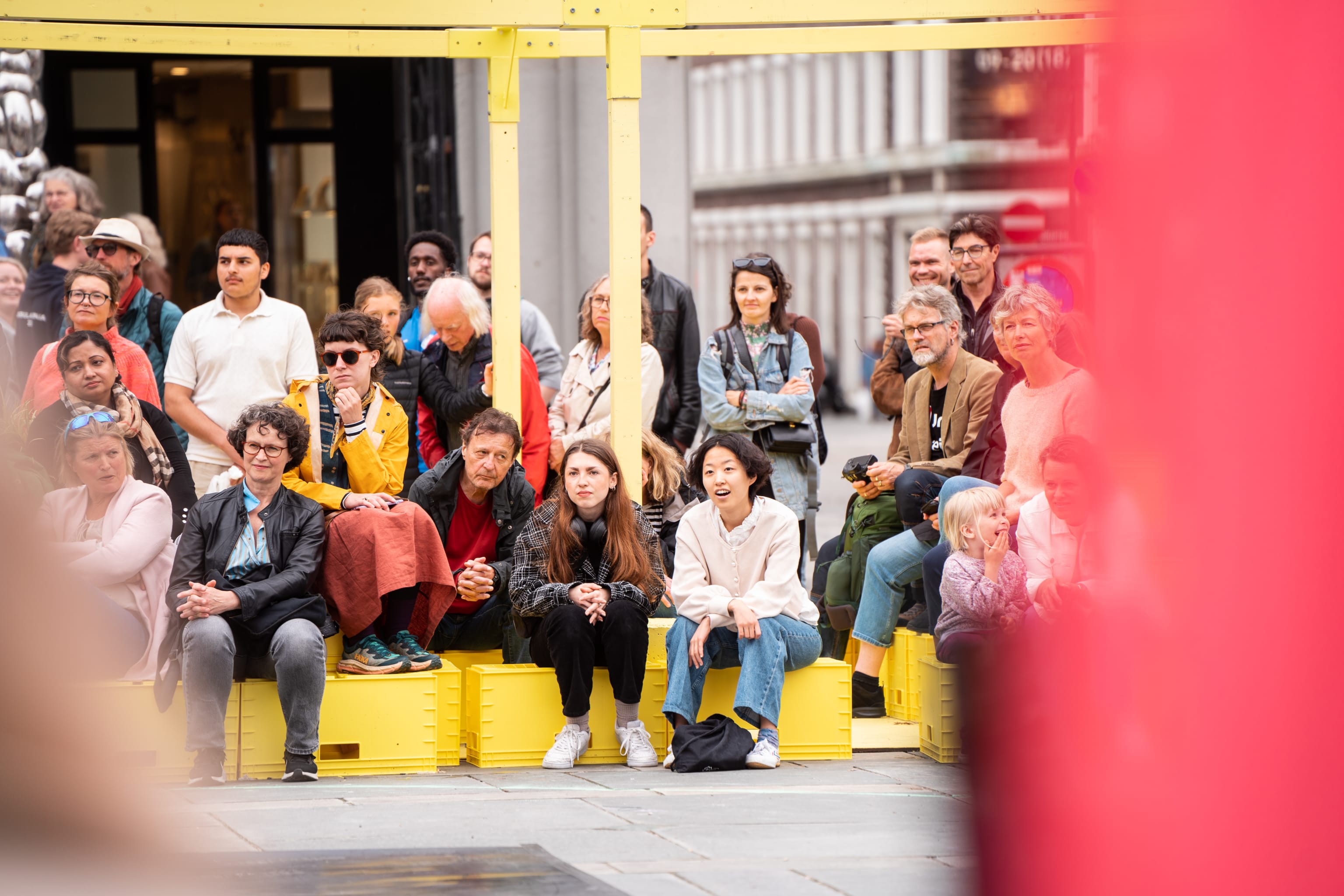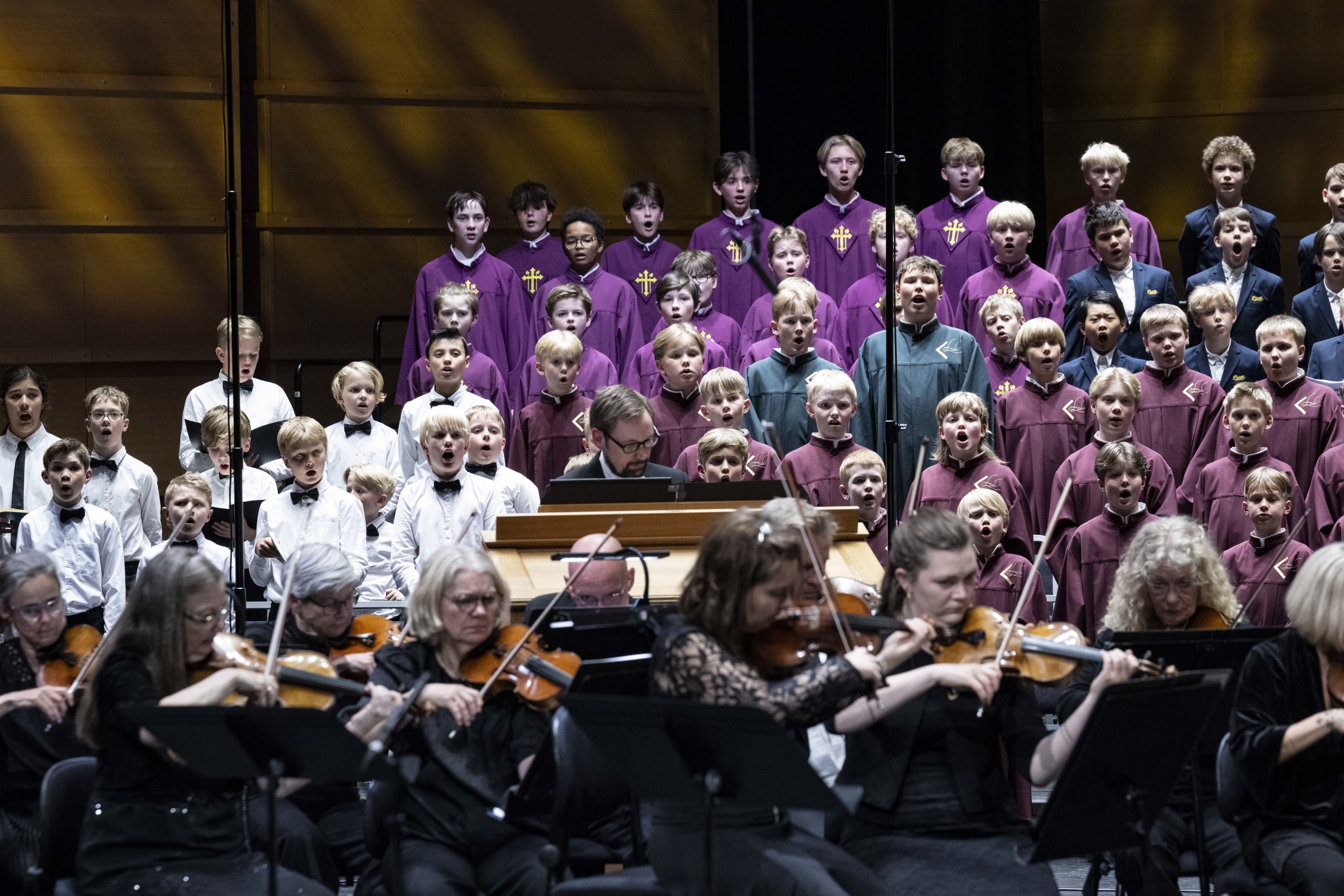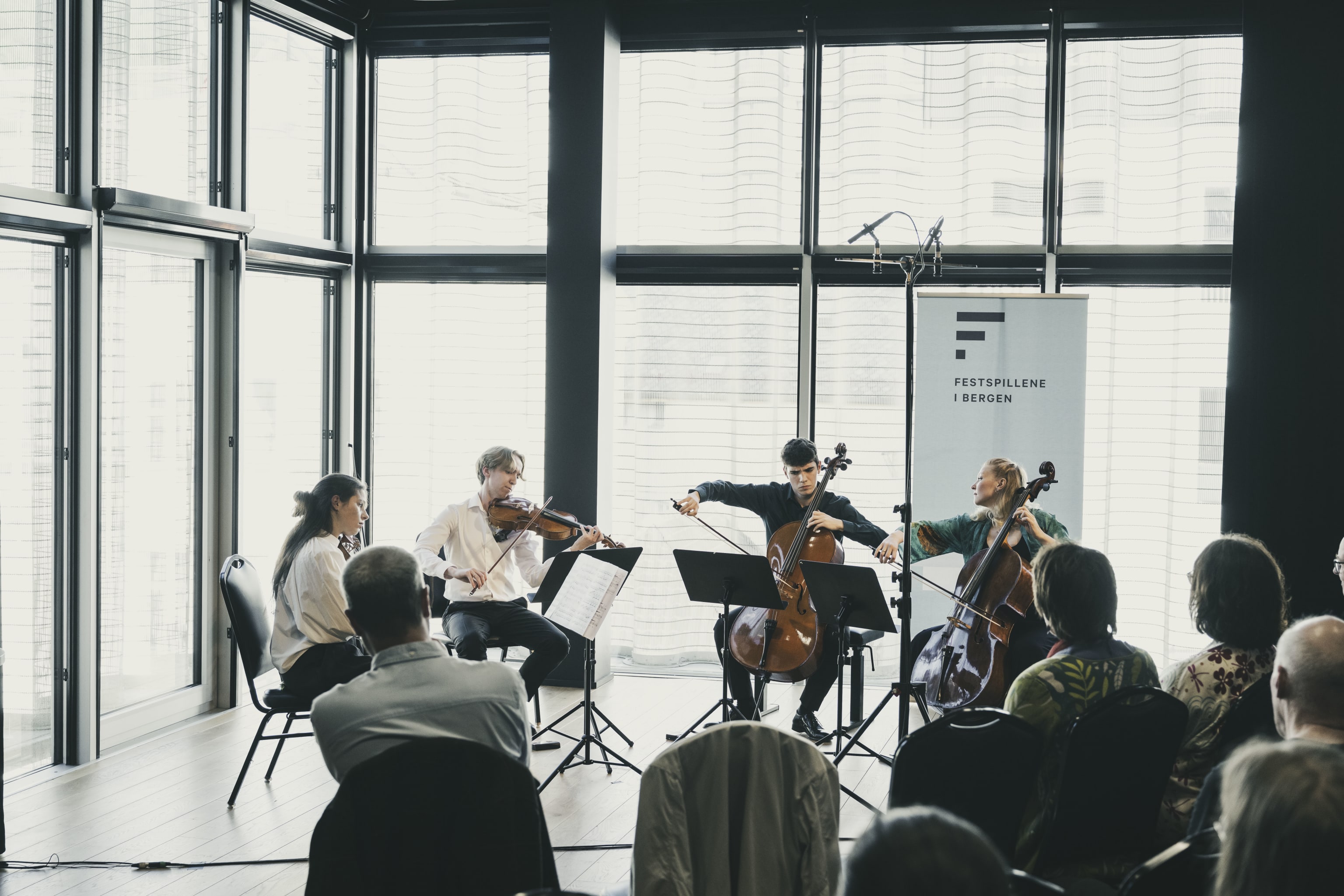
Voices we forget
- Home
- Festival
- 2023
- Articles
- Voices We Forget
February 13, 2023
A number of musical pioneers are – and have been – based in Bergen. Anne-Marie Ørbeck is one of those you may not have heard of.
This year's festival composer at the Bergen International Festival is Anne-Marie Ørbeck (1911–1996). During the war, she was in Ytre Sandviken in Bergen, writing her symphony in D major. It was completed in 1944 but was not performed until 1954 – an entire decade later. She was the first Norwegian woman to write and have a symphony performed. She was a pioneer. But if you have never heard of her, you are not alone. When she died in 1996, her obituary in Bergens Tidende filled just a small column, and her music was scarcely available.
History is full of forgotten music, and it is not always obvious which music will remain for posterity.
Anne-Marie Ørbeck was born in Kristiania (Oslo) in 1911. During the 1930s, Ørbeck distinguished herself as one of Norway's foremost pianists with performances at home and abroad and excelled with her own arrangements and cadenzas for works by famous composers. She studied both piano and composition and debuted as an orchestral composer in Berlin in 1938, where she was a soloist in her own Concertino. The piece was a significant achievement, and the concert was a great success.
Several of the projects during this year's Bergen International Festival are about the forgotten, sometimes ignored or simply hidden voices. Voices that may not have been listened to, whether because of gender, orientation, cultural background or other things. What is today gathered under the term classical music is, in reality, more than 1,000 years of music from many different places, cultures, traditions and artistic voices – an intricate musical universe in continuous development.
When streaming services were new, we thought they would open the path for more voices to be heard. We now know that algorithms are narrowing our musical horizons, even if the intention was perhaps the opposite. When everyone plays the same music – whether from the charts or in the concert hall – our overall history becomes poorer. Voices fall silent, flames die out, and we don't know what is lost along the way. Even Johann Sebastian Bach could have been forgotten.
Art is all the stories about who we are, who we have been and who we will become. In a public space characterised by those who shout the loudest and thereby receive the most attention, Anne-Marie Ørbeck modestly reminds us that we must not accept conventions without question. We must keep searching and listening.
This text was originally published in the newspaper Bergens Tidende 4 February 2023, in Norwegian.












